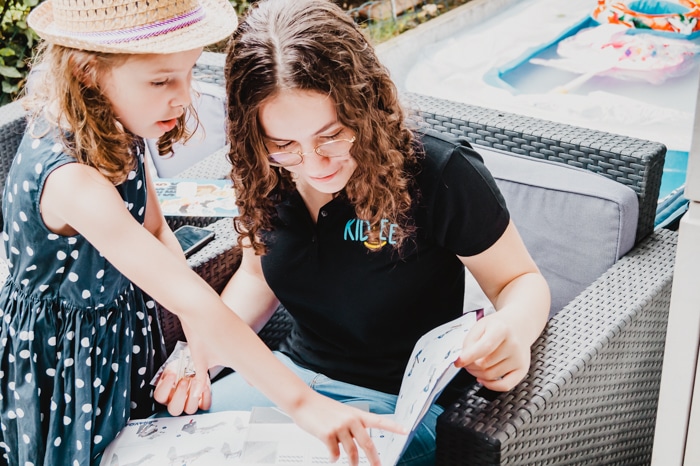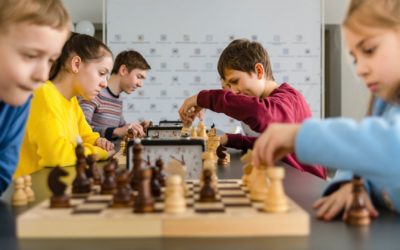Do you know what Stephen Hawking and Emma Watson have in common? They both have an intellectual awareness of over 130. And this is the case of the gifted child. Other names can be used, for example: intellectually precocious child, high potential child or "zebra". Today, it is considered that one or two children per class are gifted. This precocious intelligence requires special attention so that the child is not put in delicate situations. Kidlee explains how to spot the gifted child.
The gifted child's checklist
An atypical baby
Very short nights
Often, you may hear that a gifted baby is a real little sleeper, but this is not true. The fact is that a gifted baby will have a very hard time falling asleep, because his or her brain doesn't stop. However, a little sleep or micro-naps to recover.
A look that will put you in the ear
From a very young age, he has a scrutinizing, observant and intense look. He is very attentive and constantly on the alert. Therefore, he does not want to miss anything that happens around him.
Very early, he will speak (or later)
Indeed, the gifted child is likely to speak earlier than normal, because he is much more awake than others. However, they may speak late, but their vocabulary will be very rich right away, as they strive for perfection.
And immediately afterwards, the questions will fly!
As soon as the child can speak, he will not stop asking questions to understand why and how. He is thirsty for knowledge and has an infinite curiosity.
School - a real challenge for the gifted child
"Your child has his head in the stars", "He is not interested in classes". Two examples of the type of sentence that parents of gifted children have already heard at least once. So, we would never have thought to write a sentence like that, but yes, if your child has a high intelligence, the regular school will only hurt him.
The child will have a hard time adjusting because he or she will have to slow down to fit in. Also, his teacher may not understand why he asks so many questions. Therefore, you can opt for special schools or classes for gifted children to avoid academic failure in the regular school.
In Paris, you are lucky to have theGeorges Gusdorf School. The latter welcomes exclusively IEP students from kindergarten to high school, and even in preparatory classes. It is the only one in France to offer a complete curriculum for high potential children.
An IQ test
This is one of the most reliable indicators of whether or not a child has high potential. The psychologist, the child psychiatrist or even the parents can ask for the latter. Failure at school and lack of friends are the two main factors that will raise the alarm.
From the age of 3, children can take one of the IQ tests. Today, the IQ test The most widely used test for children and adolescents between the ages of 6 and 16 internationally is the WISC V. For those under 6 years of age, the child must take the WPPSI-IV test. A score above 130 is generally indicative of high potential.
Intertwined emotions
You will often read that the gifted child is hypersensitive. This means that these 5 senses are heightened and not that they are overly sensitive. On the other hand, it is true that some gifted children show signs of susceptibility. However, altruism and empathy are traits that are almost always present in gifted children.
The gifted child has a difficulty to integrate
The gifted child has difficulty finding a place for himself among children with normal IQs. As a result, they consider children of their own age as not interesting enough for them, while the older children consider them as the little ones who want to play with the big ones. In reality, this difference leads to loneliness and anxiety.
Kidlee and Gifted Children

At Kidlee, we know that every child is different and that every difference should be valued. That's why we have babysitters who are trained to accompany high potential children to ensure that they have fun and are adapted to their rhythm.
To learn more about our services, please contact us just here !
Among the associations for intellectually precocious children, we find the'ANPEIP and theAFEP.






